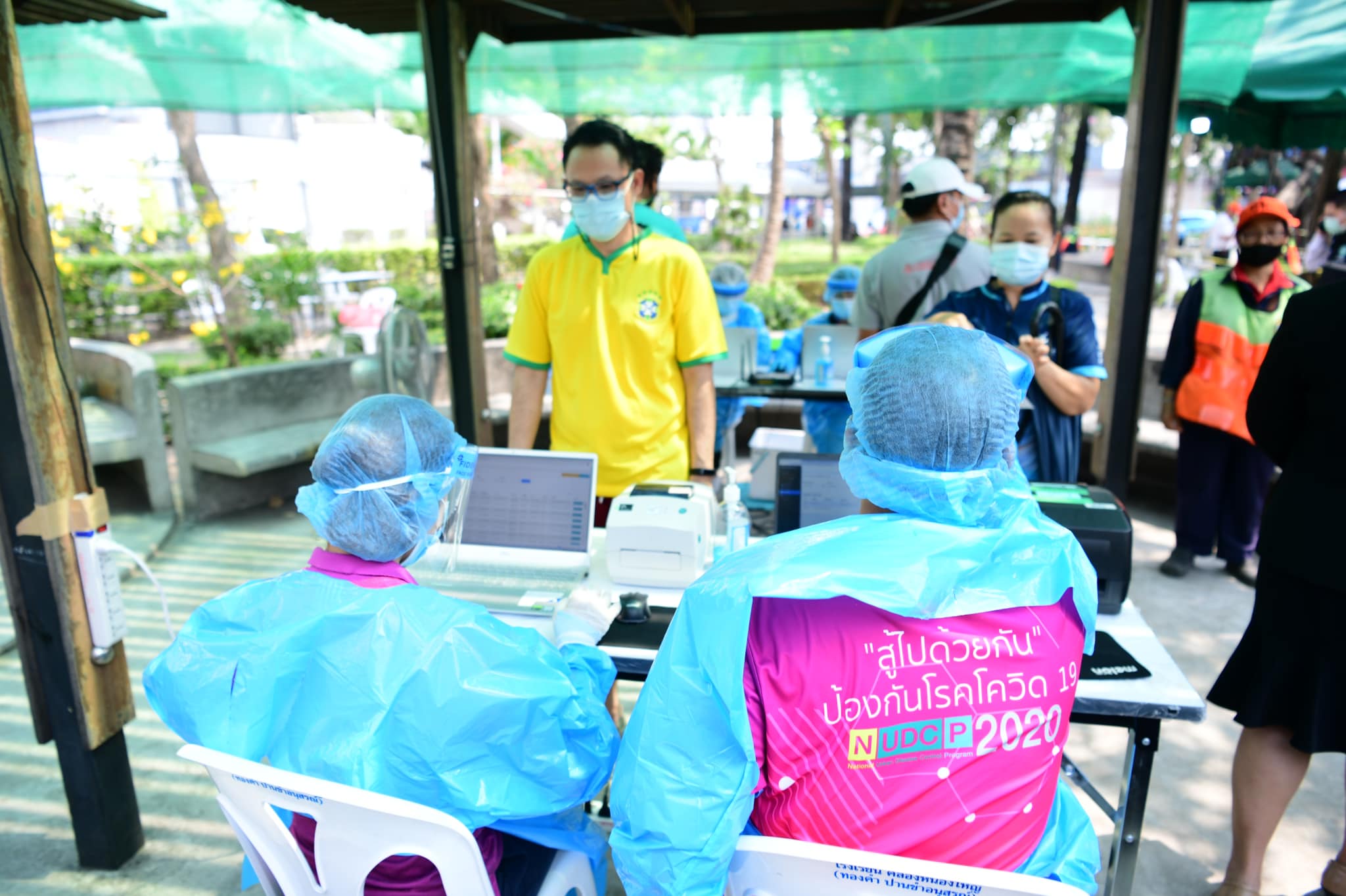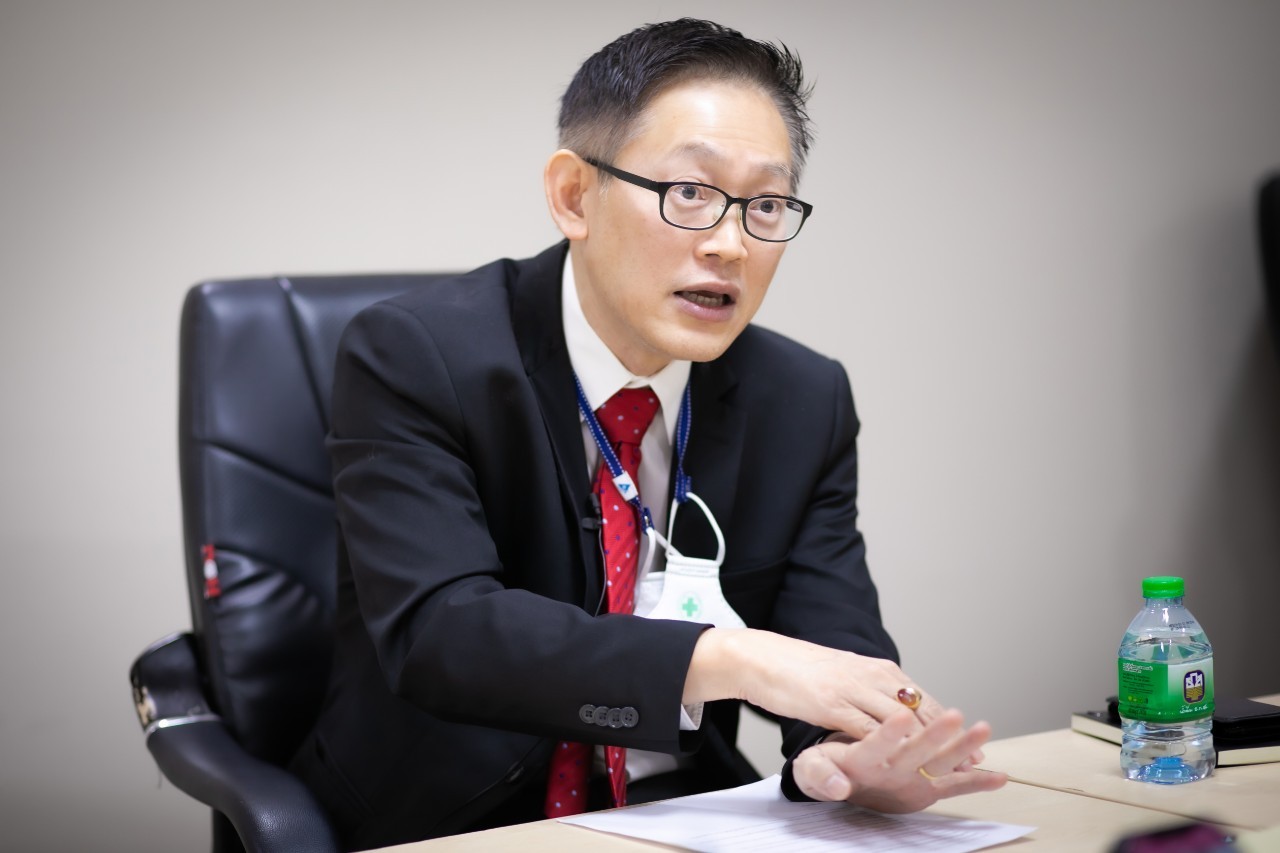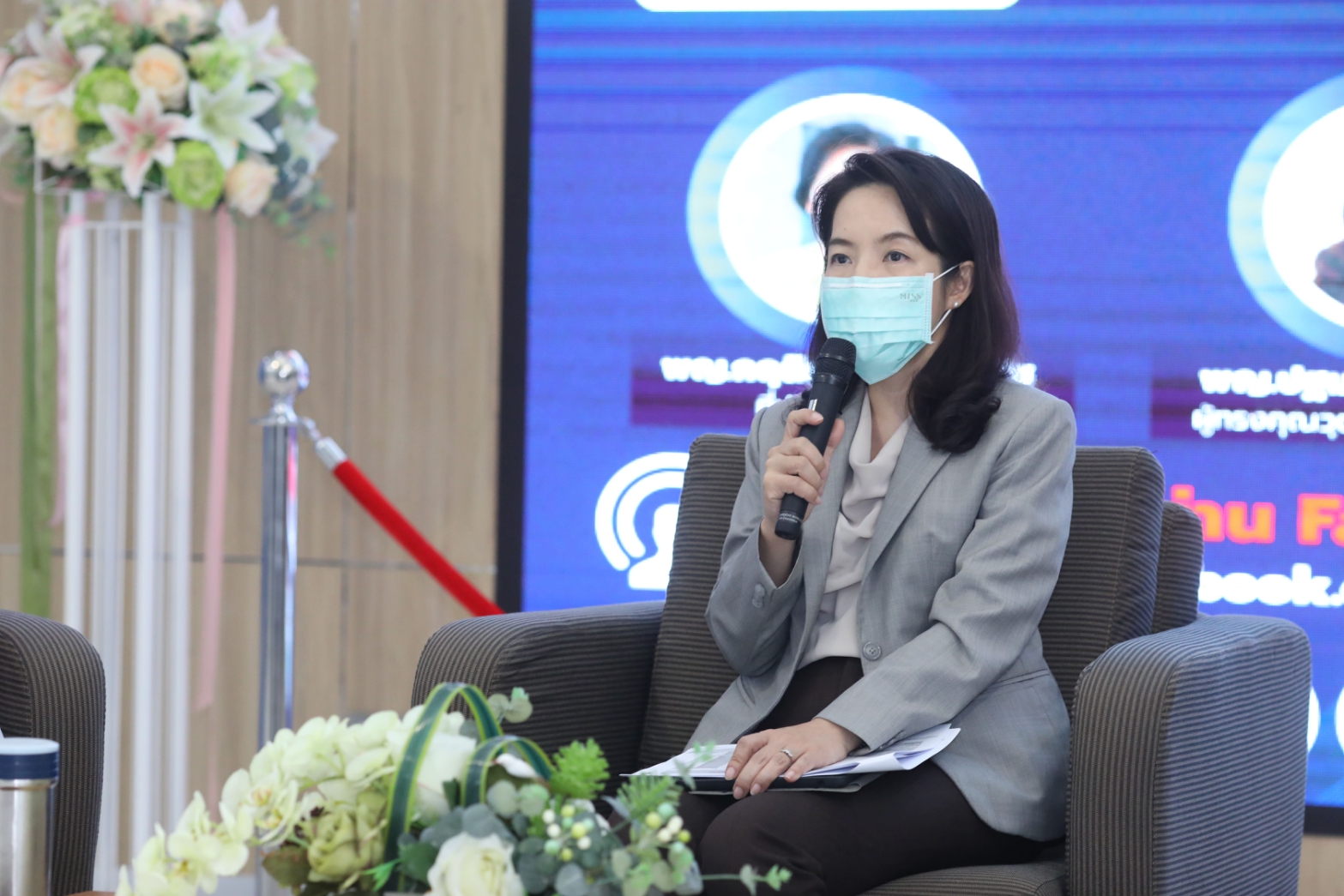
- Home
- DescriptionNews
NHSO improves claims process to cope with new-emerging phase of COVID-19

NHSO improves claims process to cope with new-emerging phase of COVID-19
Thailand is battling the new-emerging phase of COVID-19 infections, with the detection of highly contagious UK strain in cluster links to an entertainment venue in Bangkok.
This week, over 1,000 new infections are reported daily. Many of them do not show symptoms, increasing the chance for the virus to spread quickly. As of April 19, more than 43,700 confirmed cases and 104 deaths are reported in Thailand.
The rise of daily new cases presses the country's need for public health resources to handle COVID-19 patients and prevent the spread of the disease.
National Health Security Office (NHSO), which oversees Universal Coverage Scheme (UCS) and reimbursement of medical expenses from public health funds, must adjust its fund management system to catch up with rising healthcare needs.

Speed up the claims process
Recently, NHSO secretary-general Dr Jadej Thammathat-Aree works with his staff to speed up claims processing for hospital operators.
In a normal situation, the claims process takes around one month to transfer public health funds to hospital operators providing health services to the Thai government's healthcare schemes.
The process is recently shortened to two weeks to allow hospital operators to cope with the rising cost resulted from the flood of coronavirus confirmed cases.
"This will maintain financial liquidity for hospital operators who must provide emergency services every day," said Dr Jadej.
"Speeding up the claiming process is in NHSO's to-do list for some years. Coronavirus pandemic accelerates that. We're on the path to transform our ICT system to improve the efficiency of the claiming process,"
Besides, NHSO has applied online patient verification solutions to improve patient service efficiency while integrating artificial intelligence technology into the audit system.
From Oct 2020 to March 2021, NHSO reimbursed 1.86-billion-baht public health funds for hospitals and laboratories providing COVID-19 screening tests. Over 781,625 tests were conducted. Nearly 1.5 billion baht was reimbursed for health units providing COVID-19 treatment to 31,488 infectious cases.

Partner with the public health authority
NHSO has partnered with the Public Health Ministry's Department of Health (DoH), which oversees public hospitals across Thailand, to reserve hospital beds for COVID-19 patients.
Both organizations' well-established hotlines are used as the contact points for patients requiring hospital beds.
Dr Pathomporn Siraprapasiri from Public Health Permanent Secretary Office said depending on where patients take the coronavirus screening tests.
Suppose they take the test at laboratories having the link to hospital networks and have positive test results. In that case, the lab staff will link patients to hospital staff who will seek available beds in their facilities or hospital networks.
If the laboratories do not have the link to hospital networks, patients have to notify their bed needs via one of these channels; DOH's 1668 hotline, NHSO's 1330, 1669 emergency hotline, or @Sabaideebot (Public Health Ministry's Line account created for monitoring and assisting COVID-19 patients).
Dr Narong Aphikulvanich, Public Health Ministry's inspector, said that around 700 COVID-19 infected people had required hospital beds via DoH's and NHSO's hotlines.
While they are waiting for beds at home, staff from both organizations call them regularly to monitor their symptoms and update the procedure of their bed reservation.
"We understand that patients waiting for hospital beds may feel worried. We can assure them that no one will be left behind. We are doing our best to take care of them. When they get hospital beds, we will arrange transportation to pick them up," said Dr Narong.

